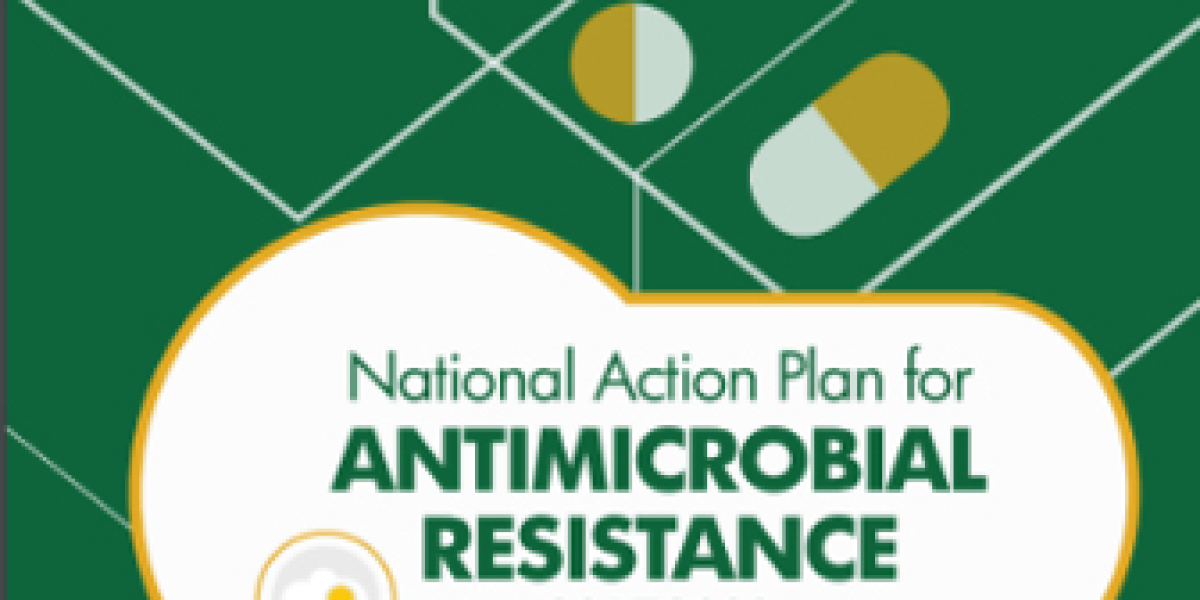Antimicrobial resistance is a global health threat, but its impact is especially severe in low- and middle-income countries. WHO Antimicrobial Resistance in Nigeria is not just a technical term — it represents a public health emergency that demands immediate and coordinated action. With rising levels of drug-resistant infections, misused antibiotics, and a fragile healthcare system, Nigeria faces a critical challenge in the fight against antimicrobial resistance (AMR).
This article explores the current state of antimicrobial resistance in Nigeria, the role of the World Health Organization (WHO), local initiatives, and what needs to be done to tackle this growing crisis.
Understanding WHO Antimicrobial Resistance in Nigeria
When we refer to WHO Antimicrobial Resistance in Nigeria, we’re talking about WHO’s ongoing efforts to address AMR in Nigeria through technical guidance, surveillance systems, policy support, public health campaigns, and collaboration with national stakeholders.
Antimicrobial resistance occurs when bacteria, viruses, fungi, and parasites evolve and develop the ability to resist the effects of medications that once killed them. As a result, common treatments become ineffective, infections spread more easily, and mortality increases — all of which are currently being observed in Nigeria.
The WHO works closely with Nigerian health authorities to support a national response. This includes:
Implementation of a National Action Plan on AMR
Promotion of antimicrobial stewardship
Strengthening of laboratory surveillance systems
Education and awareness campaigns
Collaboration across sectors (human, animal, and environmental health)
These efforts align with the global "One Health" approach that emphasizes the interconnectedness of human, animal, and environmental health.
The State of Antimicrobial Resistance in Nigeria
Alarming Rates of Drug Resistance
Studies across Nigeria have shown dangerously high levels of resistance among common bacterial pathogens like E. coli, Klebsiella pneumoniae, Staphylococcus aureus, and Salmonella species. In many hospitals, resistance to first-line antibiotics such as ampicillin, ciprofloxacin, and tetracycline is increasingly common.
Multidrug-resistant tuberculosis (MDR-TB) is also a major concern in Nigeria, placing it among the countries with the highest burdens of MDR-TB worldwide. In some hospitals, resistance to even the strongest antibiotics like carbapenems has been recorded, which leaves clinicians with very few treatment options.
Overuse and Misuse of Antibiotics
One of the primary drivers of antimicrobial resistance in Nigeria is the misuse of antibiotics. Many Nigerians obtain antibiotics over the counter without prescriptions. Self-medication is rampant, and antibiotics are often taken for viral infections like colds and flu — conditions for which they have no effect.
Moreover, many people stop taking antibiotics once they start to feel better, rather than completing the full course. This incomplete treatment contributes significantly to the survival of resistant bacteria in the body.
Weak Regulation and Poor Awareness
Despite policies aimed at controlling the sale and use of antibiotics, regulation remains weak. Antibiotics are still widely sold in markets and pharmacies without proper prescriptions, and oversight is minimal.
Compounding this issue is a lack of public knowledge about AMR. Surveys indicate that while many people have heard of antibiotic resistance, few truly understand what causes it or how it can affect them and their communities.
AMR in Agriculture and Livestock
The misuse of antibiotics isn’t limited to human medicine. In Nigeria’s agricultural sector, antibiotics are often used to promote growth and prevent disease in livestock. This practice contributes to the development of resistant bacteria, which can then enter the food chain and affect humans. The lack of regulations around veterinary antibiotic use exacerbates the problem.
WHO and National Response to AMR
Nigeria’s National Action Plan
In alignment with WHO guidelines, Nigeria launched its first National Action Plan on AMR in 2017. This plan outlines strategic objectives, including improving awareness, strengthening surveillance, promoting responsible use of antimicrobials, and fostering collaboration across sectors.
More recently, an updated National Action Plan 2.0 has been developed to continue these efforts and fill in existing gaps. However, implementation remains uneven due to funding challenges, lack of infrastructure, and limited inter-sectoral coordination.
Role of NNAST and the Nigeria Centre for Disease Control
The Nigerian National Antimicrobial Stewardship Taskforce (NNAST), working with the Nigeria Centre for Disease Control (NCDC), has taken a leading role in pushing antimicrobial stewardship across the country. They provide technical guidance, training, and coordination for healthcare providers, aiming to embed best practices into daily medical care.
Surveillance Systems
With support from WHO, Nigeria has joined the Global Antimicrobial Resistance Surveillance System (GLASS), which tracks the spread and trends of resistant pathogens. However, many hospitals still lack the diagnostic labs needed to conduct culture and sensitivity testing — a basic requirement for understanding AMR patterns and prescribing the right treatment.
Public Education and Awareness
Awareness campaigns, particularly during World Antimicrobial Awareness Week, have been conducted to inform the public about the dangers of AMR. WHO has also supported training programs for students and healthcare workers, aiming to create community-level ambassadors for antimicrobial stewardship.
Challenges Hindering Progress
Despite these efforts, major challenges remain:
Inadequate funding for AMR activities at national and state levels
Limited diagnostic capacity, especially in rural hospitals and clinics
Poor enforcement of existing regulations on antibiotic sales
Low awareness among the general public
Lack of incentives for research and innovation in new antibiotics and diagnostic tools
Until these systemic challenges are addressed, the threat posed by antimicrobial resistance will continue to grow.
Recommendations for Strengthening the Fight Against AMR in Nigeria
To effectively implement the goals of WHO Antimicrobial Resistance in Nigeria, the following actions are necessary:
Enforce Regulations
Restrict over-the-counter sales of antibiotics
Implement strict penalties for non-compliance
Monitor veterinary use of antimicrobials through national guidelines
Expand Laboratory and Diagnostic Capacity
Equip health facilities with microbiology labs
Train lab personnel on antimicrobial susceptibility testing
Improve data sharing between hospitals and national surveillance systems
Promote Antimicrobial Stewardship
Establish stewardship programs in all healthcare facilities
Provide guidelines for appropriate antibiotic use
Train healthcare workers on rational prescribing and treatment review
Educate the Public
Launch nationwide awareness campaigns in multiple languages
Use schools, social media, radio, and religious institutions for outreach
Promote responsible behavior regarding self-medication and prescription adherence
Integrate the One Health Approach
Coordinate human, animal, and environmental health sectors
Monitor antimicrobial use and resistance across all sectors
Develop a national One Health AMR coordination platform
Conclusion
The reality of WHO Antimicrobial Resistance in Nigeria is a wake-up call. Without urgent and coordinated action, the country risks entering a post-antibiotic era where even minor infections could once again become deadly.
Nigeria must fully embrace the WHO's guidance, strengthen its health systems, regulate antimicrobial use, and educate its citizens. Through collective effort — from government to healthcare providers to everyday citizens — the tide of antimicrobial resistance can be turned.
The battle against AMR is not just a medical issue; it is a societal challenge that touches every aspect of life. With bold policies, public engagement, and international collaboration, Nigeria can become a model for how developing nations tackle one of the greatest health threats of our time.






